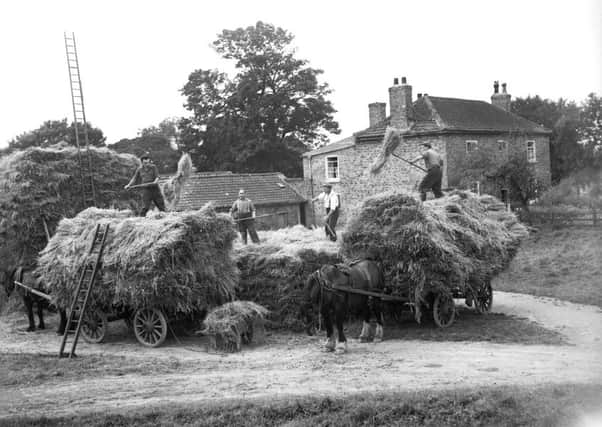On this day in Yorkshire 1951
This article contains affiliate links. We may earn a small commission on items purchased through this article, but that does not affect our editorial judgement.


The Inevitable effects of a wet winter and late spring will be reflected in Yorkshire’s grain harvest this year.
Yields, generally speaking, are expected to be much lighter than normal, and it will be at least the third week in August before harvesting operations are in full swing.
Advertisement
Hide AdAdvertisement
Hide AdCrops are a good fortnight behind schedule, and this is not unexpected.


Heavy rain and flooding played havoc with the autumn sown corn, and conditions were no better in the spring.
From an arable point of view, April could be pretty well written off the farming calendar. Spring wheat was sown late and there was the greatest delay for many years in almost all of farm work.
But taking everything into account, the general farming picture as seen now could have been much worse.
Advertisement
Hide AdAdvertisement
Hide AdThough the position is extremely difficult to assess, it is certain that the yields will be higher, yet to what extent will depend very largely on the weather during the next four or five weeks.


“The situation may well prove disastrous,” one prominent West Riding farmer said last night. In the East Riding, he said, the pool labour force of the County Agricultural Executive Committee had been reduced to about 150, and this, with the coming call-up, would add materially to the difficulties of the last season.
Given the best conditions, however, crops will be below the average for the last 10 years, and most farmers are not expecting much improvement on the 1947 figures.
Much of the winter wheat is thin and patchy. Barley is even less satisfactory, but there is more hope for the spring corn. which looks surprisingly well in the circumstances.
Advertisement
Hide AdAdvertisement
Hide AdThere are also many poor fields of oats. Farmers are obviously in for a bad time on the heavy clay lands of Holderness and South Yorkshire.
The situation in Holderness is particularly serious: the harvest there is likely to be one of the poorest of the century. The land never had a real chance of drying out during the wet weather, and the heavy soils were just unworkable in the spring as they were unploughable in the late autumn. Winter wheat and spring corn have thus suffered equally.
Search through our archive papers and much more at the http://www.britishnewspaperarchive.co.uk